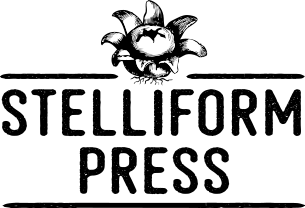Two weeks ago, the RCMP raided Wet’suwet’en territory, arresting dozens of Wet’suwet’en land protectors in an effort to clear the way for the Coastal Gas Link pipeline. This action by Canadian authorities has since resulted in nation-wide protests. It seems inappropriate to post good news eco-stories when this is happening in Canada; but this always happening in Canada. And every other colonial state. This is the perpetual context of environmentalism in the West.
N.K. Jemisin’s “The Ones Who Stay and Fight” is the opening story in the author’s short story collection, How Long ‘Til Black Future Month. The story introduces the collection, as does the book’s title, as a work of fundamentally utopian sff.
“The Ones Who Stay and Fight” was written in conversation with “The Ones Who Walk Away from Omelas”, Ursula K. Le Guin’s own challenge to utopia, published in 1973. “Omelas” has been discussed extensively (a recent article on “Omelas” and its utilitarian implications for our own times can be found here) and this review will side-step a comprehensive comparison of “Omelas” and “The Ones Who Stay and Fight”. Instead, the focus here is on Jemisin’s story, its conception of systemic violence, its implicit sense of justice and hope, and how Jemisin’s vision applies to the fight against climate change.
Osahon Ize-Iyamu’s “More Sea Than Tar” in Reckoning 3 is about a Nigerian family struggling against the currents of modern life in a flooded and slowly disintegrating town. The main character, Uti, must navigate opposing family dynamics in order to find his own way of living.
Tlotlo Tsamaase’s novelette “Eclipse our Sins” is a dense and lyrical story in which a young girl searches for the reason her family members are falling ill in a world in which Mother Earth seeks revenge for a multitude of sins committed against her.
Tsamaase’s future is one in which those effects against the earth are tangible. For example, xenophobic or sexist thoughts emerge into the air as smog, contributing to ecological destabilization. The protagonist, and many others in the story, wears a respirator which protects her from the material effects of anti-social elements; but requiring this protection is a burden on the poor who must not only regularly replace their respirators to survive, but are also dependent on proprietary medicines.
P. Djèlí Clark’s The Black God’s Drums is fast-paced and fun, with characters that play off each other’s quick-witted banter. The world created in this novella is a slightly off-kilter version of our own, with recognizable politics (where the bad guys are Confederates singing songs about Andrew Jackson) juxtaposed with airships and mind-numbing “drapeto gas” which keeps a slave economy running after emancipation. But the part of this book that is so interesting to us is the orisha magic wielded by main characters Jacqueline (or Creeper) and Anne-Marie, magic which connects the narrative so strongly to place.
